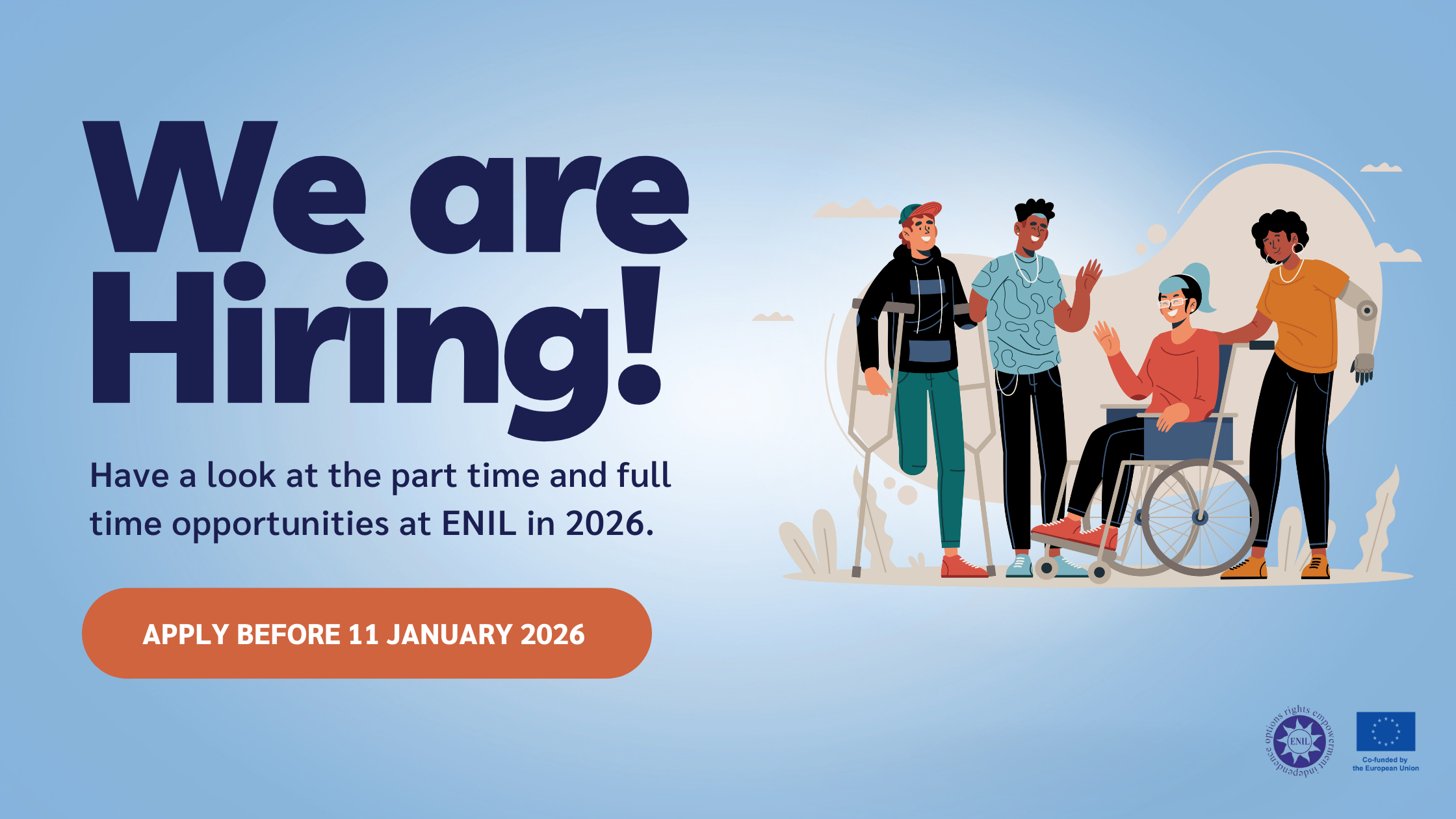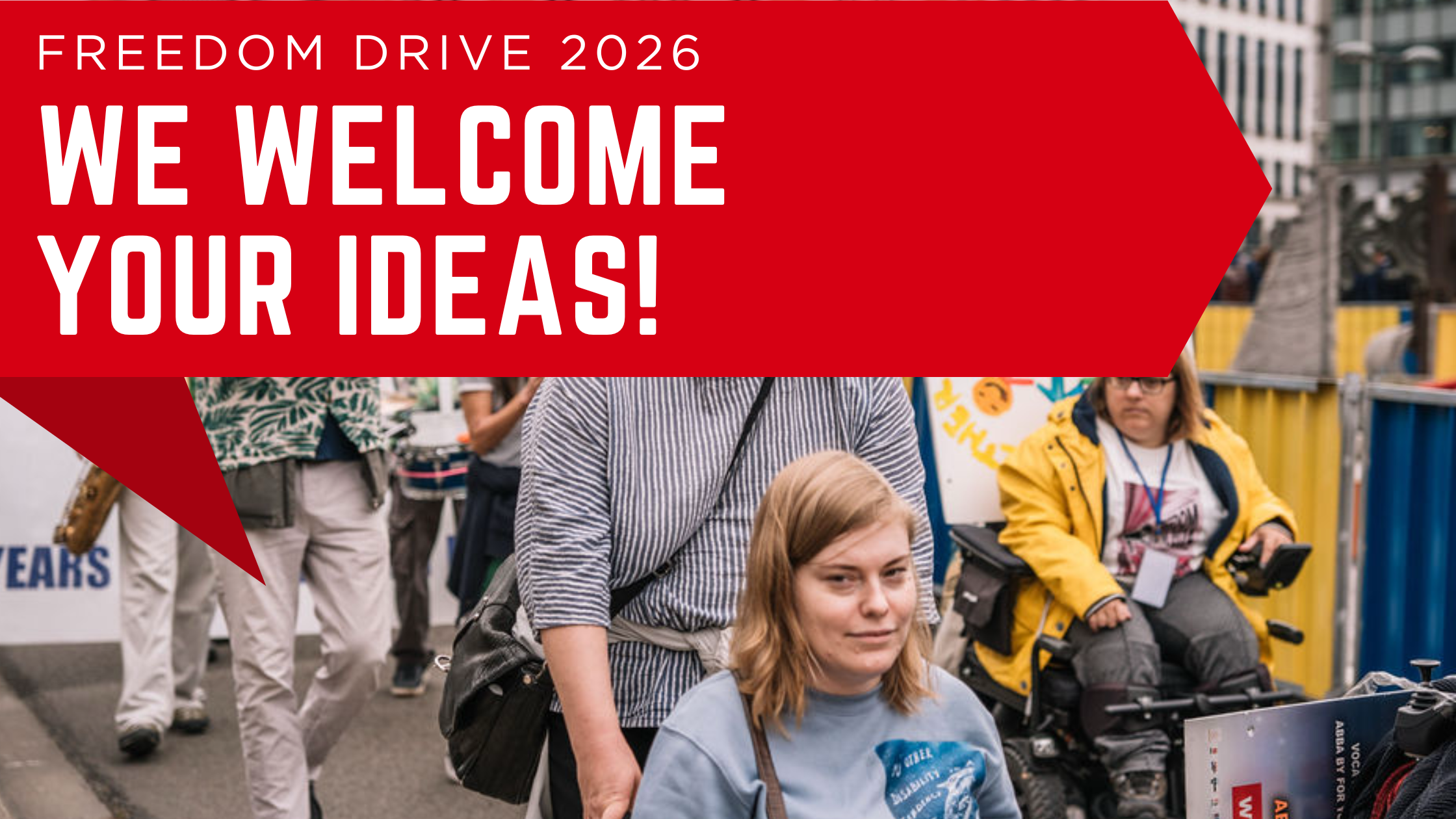My academic career began in 2010 when I completed a BSc Psychology at Ulster University. My original intention was to train as a Clinical Psychologist, however my undergraduate degree introduced me to the realm of research. I quickly became fascinated with qualitative research methodologies particularly the ways in which we interpret the world around us and make sense of our experiences. I began my research studies immediately after graduation with Ulster University Doctoral College and worked for the School of Psychology as a Research and Teaching Assistant. Unfortunately, due to a period of extended illness I found myself in the devastating position where I needed to postpone my studies in order to focus on my health.
It was during my recovery that I began to work for the Centre for Independent Living Northern Ireland (CILNI) in 2013 as an Independent Living Adviser. CILNI was founded in 2001 by a group of disabled people keen to embed the philosophy of independent living and the movement as a whole in Northern Ireland. The Management Board is made up entirely of disabled people, who through their hard work and determination, have made and continue to make a significant difference to the understanding of social care and the policy landscape in which it is situated. CILNI trained me in all aspects of independence through personal assistance within a social care context, and over five years I worked with many individuals, practitioners and professionals seeking to make independence a fundamental principle for disabled people in Northern Ireland. They also introduced me to the need for activism and I began to consider the role that research could have in evidencing the need for change using the lived experiences and expertise of disabled people.
By 2017 I was well enough to return to university to complete my PhD whilst continuing to work for CILNI. Shortly before I submitted my thesis I became their first Research and Policy Officer, which was an amazing opportunity to examine some of the common issues and concerns CILNI members and users were experiencing. During this time, I wrote a number of reports examining the practical, emotional and financial challenges associated with personal assistance. A key project was the Independent Living Fund: Northern Ireland Impact Evaluation published in July 2020 in collaboration with Gauge Impact Northern Ireland, in which we were able to evidence the exceptional impact the fund has in making independence real for its recipients. Their personal stories of using the fund were truly remarkable, and it is clear throughout that the Independent Living Fund facilitates the Government’s obligations under Article 19 of the United Nations Convention on the Rights of People with Disabilities and, as such, is a prime example of practical and financial best practice.
In January of this year I began to work for Disability Action Northern Ireland as their Peer Action Research Coordinator within the ONSIDE project (Outreach and Navigation for Social Inclusion and Digital Engagement) which is a disability led project designed to improve the health and well-being of disabled people through increased social and digital involvement in their community. ONSIDE is an INTERREG funded project in partnership with the Northern Ireland Housing Executive, Supporting Communities and the Independent Living Movement Ireland.
The research element of the project is steered and conducted by people who have lived experience of disability, and we are focusing on the disabling barriers and challenges present and emerging within our society. A core principle of our work is not only to evidence the experiences of research participants, but to use that evidence to take action to facilitate true independence and self-determination. ONSIDE is funded until March 2022 within which time we will publish a series of research reports and recommendations based on the key emerging themes.
Covid-19 has undoubtedly become a feature of our work at ONSIDE and has emphasised the need to address social isolation digitally. Like so many others, when the pandemic stuck, we became very aware that many disabled people felt their voices were being lost in the noise or worse simply ignored in the confusion and panic that was unfolding. Myself alongside my colleagues in Disability Action wanted to capture, in time, the reality for disabled people on the ground and provide a forum for people to share their lived experiences of the pandemic. While our research captured respondents’ experiences within key categories, it quickly became evident that many were experiencing multiple challenges at the same time. Within their responses, challenging circumstances emerge that not only highlight the sudden and substantial impact COVID-19 has had on their lives, but also demonstrate the fragility of independence and raise questions about the strength of human rights in the face of such a crisis.
Links for publicly available reports:
O’Neill, E. & Fitzpatrick, F. (2020). Independent Living Fund Northern Ireland Impact Evaluation. Centre for Independent Living NI, Gauge Impact NI & Independent Living Fund Scotland. https://ilf.scot/wp-content/uploads/2020/07/44188-ILF-NI-Impact-Evaluation-Report.pdf
Fitzsimons, S., Crawford, A. and O’Neill, E. (2020). The impact of Covid-19 for disabled people in Northern Ireland. Disability Action NI. https://www.disabilityaction.org/news/report-now-available-the-impact-of-covid-19-on-disabled-people-in-ni


